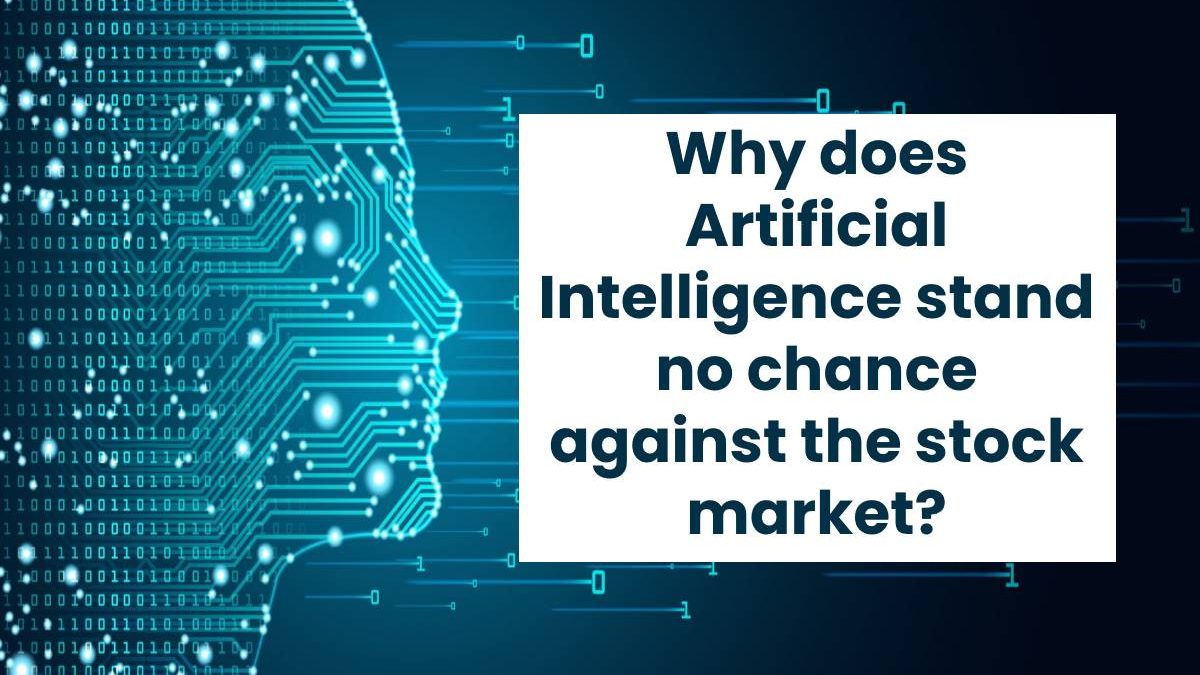Why does Artificial Intelligence stand no chance against the stock market?
The stock market remains unbeaten even by the most experienced traders till today. There exists no individual or organization that has managed to design a plan or strategy which will make no mistake while trading on the stock market. Recently, many traders and experts have expressed their opinions that Artificial Intelligence could be the one to solve the complexities behind the stock market.
These people believe that programming a machine to calculate an ultimate formula for a 100% success rate in stock trading is more than real within the realm of artificial intelligence. But they are very wrong, unfortunately.
Gone are the days when you needed to save hundreds to buy a single share of today’s leading companies. For instance, at SoFi, Fractional shares make it possible to own part of a stock from your favorite companies without committing to a whole share.
The biggest drawback that algorithms have in future market move predictions is the fact that they cannot predict them. The way that they forecast the price is by analyzing the past price movements and considering various technical aspects of an instrument, but sadly they are unable to consider any future fundamentals.
The stock market is an extremely competitive environment making it impossible to trade on reactionary information which is already priced in. Is there any way that an artificial intelligence machine can achieve unimaginable success rates in stock trading? Let’s see.
Potential prospects for AIs in stock trading
Well, AIs can definitely conduct a thorough technical analysis. However, it is never enough for the success rates of your trades. In fact, the research shows that analysis tools and trading algorithms used by a great majority of people end up being highly losing.
The reason is that traders blindly believe trading robots can simply choose the right direction all the time to either buy or sell the instrument, which is enough for becoming rich.
However, in reality, none of the algorithms currently existing are able to guess the right direction based purely on technical at all times. It is very much like aiming at a dartboard on a blindfold – it will hit the wall 9/10 times and only once will get it right.
Being presented with only two choices to either buy or sell an asset creates a cognitive bias for the traders that chances of winning are higher. Sadly, using bots to trade Forex or trade stocks is no more profitable than learning the financial sector yourself and understanding market dynamics to manually hold or release your trading orders .
To understand the complexity of the stock market we should realize how many participants are involved in the system, not only humans but also machines and algorithms. It means that your Artificial Intelligence machine would have to predict the collective decision of numerous algorithms and various kinds of traders, which undoubtedly creates an infinite loop of complexities. If you were to calculate the probability that your algorithm gets the market movement prediction right, the chance of succeeding would fall way below 50% and sometimes even lower than 1%.
Why do people still prefer trading bots?
One of the main reasons why people trust bots more than themselves is the fact that the market is often overwhelming for humans while machines remain untouched no matter how dramatic the market conditions are. However, if you consider significant market fluctuations then algorithms are confused, as well. Whenever machines have to counter massive volatility and swings on the market, operators choose to switch them off and instead trust the humans again to take over. It is evident every time we encounter a black swan event that algorithms and AIs fail to protect us against high standard deviation moves.
People also tend to believe that machines are more consistent. They are more consistent than humans, however, it is not an absolute truth. The machines are more likely to cause serious problems on the market instead of being able to actually predict them. That was the case in the 2010 flash crash, when a single malfunction of an algorithmic computer led to a brief market meltdown.
Ultimately, the best resource against the stock market is discipline, hard work and extensive research. But even these three alone grant the slightest chance of succeeding on your trades. We are not able at this moment to decipher our collective minds that run the world of stock trading. The absolute best traders who have managed to get fortunes through trading stocks record less than 50% success rate on their trades. AIs and algorithms offer even lower profitability, which should be no surprise to anyone familiar with financial sectors.

